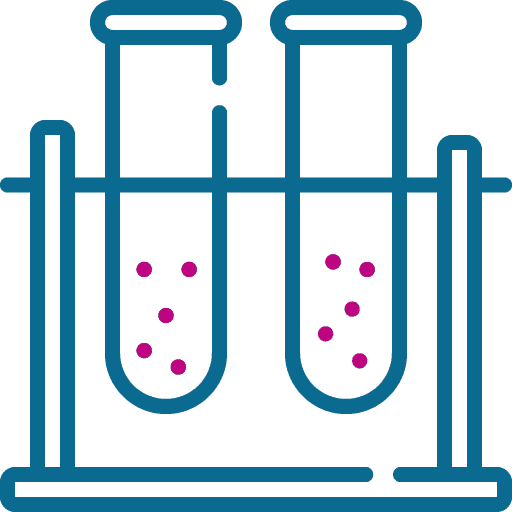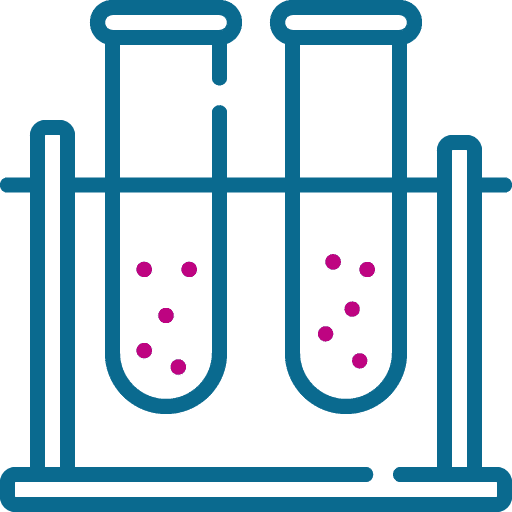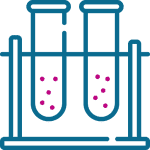A urine test (UTI) is a screening test for kidney disease and urinary tract infections.
When should I be tested?
The CPT is carried out during routine medical examinations. It is prescribed when symptoms of urinary tract infection are suspected or occur, such as lower abdominal pain, pain in the lumbar region, frequent and/or painful urination and blood in the urine.
The CBC is one of the main tests during pregnancy, during hospitalisation or before surgery.
If changes in BSI are detected, microscopic examination of urine sediment is recommended.
What sample is needed for the test?
Urine. It is recommended to collect only morning urine. Only the middle portion of urine should be collected for the test, i.e. the first portion of urine should be allowed to flow into the toilet, the middle portion of urine should be collected in a volume of about 50-100 ml, and the rest of the urine should be allowed to flow into the toilet. A urine test requires about 30-50 ml (minimum 10 ml).
How to prepare for the survey?
Wash your hands and genitals with soap before the test (wash well with plain water and dry the external genitals). It is not recommended for women to have a urine test during menstruation, preferably 2-3 days after. The urine sample must be delivered to the laboratory for testing within 2 hours.
What do my results mean?
Urine test (UTI) – the result can be interpreted in different ways. An abnormal result means an increased likelihood of a disorder that requires further testing. The higher the level of substances such as glucose, proteins or high levels of red blood cells (erythrocytes), the higher the likelihood of pathological changes, which is why additional laboratory and instrumental tests are necessary. NOTE: Pathological results of a BPT do not indicate the cause of the disorder or the nature of the abnormalities, i.e. y. whether the changes are temporary or long-lasting (chronic).
Normal BPT results do not exclude the presence of disease. In the early stages of the disease, the increased excretion of substances may go undetected, as substances are excreted unevenly by the kidneys throughout the day, meaning that they may not be present in a single urine sample. In this case, the CPT should be repeated, as well as daily urine collection and calculation of 24-hour urine output.
The CTS consists of 10 chemical indicators:
1. Relative density – gives an approximate estimate of the concentration of urine, and therefore reflects whether the urine is concentrated or dilute, and reflects the water balance in the body. A high relative density means that too little fluid is being consumed.
2. pH – reflects the acid-base balance, indicates specific renal pathology, and allows the recognition of bacterial urinary tract infections.
3. Leucocytes – leucocytes appear in the urine as a result of urinary tract infections, as well as non-infectious kidney diseases;
4. Nitrites – a sign of bacterial infection in the urinary tract, often positive with leukocytes.
5. Protein – the presence of protein (mainly albumin) in the urine reveals kidney damage, which causes protein to leak into the urine.
6. Glucose – begins to be excreted in the urine once it reaches a threshold concentration in the blood, so a positive result is a sign of excess glucose in the blood.
7. Ketones – excreted in the urine in diabetes, after strenuous exercise, fasting, inflammatory bowel disease and vomiting.
8-9. Urobilinogen and bilirubin are bile pigments that are secreted in the presence of liver pathology, in the case of jaundice, reflecting alcoholic liver damage.
10. Erythrocytes – indicates kidney pathology resulting in the presence of blood (erythrocytes, haemoglobin) in the urine, but the result may also be positive for physiological conditions such as menstruation, high physical exertion.
Related studies
Glucose, urine glucose, urine glucose, urine daily glucose, urine protein, urine protein, urine albumin, urine albumin, urine albumin, microscopic examination of urine sediment
Related conditions/diseases.
Pregnancy, kidney disease, urinary tract infection, proteinuria, diabetes mellitus, hypertension, myeloma, rheumatic diseases.
Source: https://medicinapractica.lt/produktas/automatizuotas-juostelinis-slapimo-tyrimas/
You can consult our family doctors.





